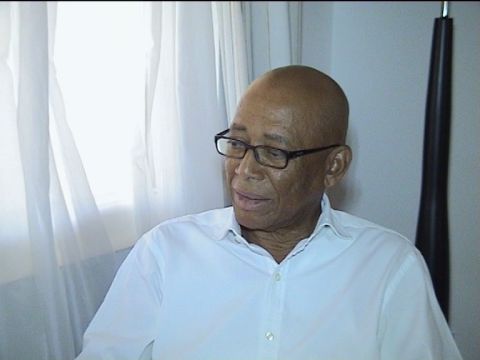 A Former Commissioner of the Commission on Human Rights and Administrative Justice (CHRAJ), Justice Emile Short has emphasized the need for major stakeholders in the country to use what he describes as the “name, shame and jail” approach to fight corruption in the country.
A Former Commissioner of the Commission on Human Rights and Administrative Justice (CHRAJ), Justice Emile Short has emphasized the need for major stakeholders in the country to use what he describes as the “name, shame and jail” approach to fight corruption in the country.
“When people are involved in corrupt conduct, you have to identify them, you have to expose their conduct and you have to investigate and prosecute them. If they are found guilty then they are given the appropriate punishment,” he maintained.
The country has been hit with a number of corruption scandals.
The National Service Secretariat (NSS) Boss is in the grips of the Bureau of National Investigation (BNI) for defrauding the state.
He has been accused of paying allowances to over 22,000 non-existent service personnel.
Other scandals that have plagued the country include the infamous payment of GHC 51 million to businessman, Alfred Woyome and the Commissioner of CHRAJ, Lauretta Lamptey’s decision to spend about 180,000 dollars alone on rent.
The Head of the Human Security Department of the National Security Secretariat, Brigadier-General Joseph Nunoo-Mensah (rtd) has said Ghana’s corruption level has reached an epidemic status.
The Sole Commissioner investigating the judgment debts has also ended its sittings and is yet to suggest some recommendations on effective ways of dealing with the canker to government.
Speaking in an exclusive interview with Citi News, Justice Emile Short suggested that another effective way of making corruption distasteful to the citizenry is to implement the National Anti-corruption Plan (NACAP) which was recently approved by Parliament.
The National Anti-corruption Action Plan (NACAP) is a 10-year blue print which seeks to reduce corruption in the country.
When asked whether the NACAP has achieved its core mandate, Justice Short said “that will depend on having strong leadership who believe in accountability and does not tolerate the culture of impunity.”
He further added that “there is a lot more that government should do to fight corruption especially implementing the national action plan.”
“We have to wait and see whether government will implement NACAP, it’s only this year that it was debated in Parliament and adopted as a national policy document so we are yet to see whether government will implement it. I hope that a time will come when we have people that support this concept or idea,” he indicated.